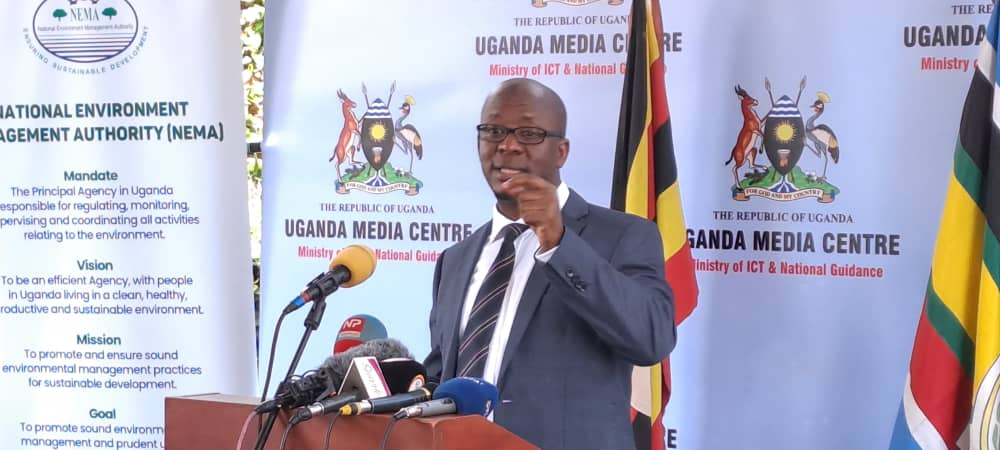The National Environment Management Authority (NEMA) has launched a set of regulations and standards designed to protect Uganda’s air quality amidst the mounting challenge of air pollution.
These pioneering measures mark a significant step in addressing the adverse effects of pollution on public health and the environment. The recently unveiled regulations, known as the National Environment (Air Quality Standards) Regulations of 2024, have been officially published in The Uganda Gazette by the Uganda Printing and Publishing Corporation (UPPC) to ensure compliance with legal requirements.
Developed through extensive collaboration with stakeholders such as the Embassy of the United States of America and the Kampala Capital City Authority, these regulations aim to comprehensively address air quality concerns.
Key objectives include; establishing clear standards for indoor air quality to safeguard the health of occupants in workplaces and other enclosed environments. Additionally, the regulations impose stringent emission limits for industrial facilities, vehicles, and other sources of pollution to mitigate their impact on communities.
A robust permit and compliance program has been instituted for industrial sources, incentivizing adherence to environmental standards while ensuring accountability. Industries emitting above allowable standards will be required to obtain permits and may face penalties for non-compliance.
Dr. Barirega Akankwasah, the Executive Director NEMA, emphasized the importance of automated air quality monitors for industries, with penalties for those exceeding emission standards. Non-compliance may result in fines or imprisonment, underscoring the seriousness of the regulations.
“Industries that emit above allowable standards will require permits,” Akankwasah said, noting that industries that use green technologies will save money, while those using old technologies will be penalized.
As per the regulations, any individual who neglects to establish an air quality monitoring program and management plan is deemed to have committed an offense. Upon conviction, such individuals may face a fine not exceeding twenty thousand currency points (equivalent to Ugx400m) or imprisonment for a period not exceeding four years, or both.
For corporate entities, the regulations stipulate that a fine not exceeding Ugx1bn may be imposed. In cases of persistent violations, the entity may face an additional penalty of Ugx40m for each day or part thereof when the offense was committed.
The regulations also prohibit the release of objectionable substances into the atmosphere, including smoke, gases, and dust. Open burning of garbage and combustible materials is also outlawed to curb pollution.
Jennifer Kutesakwe, the Senior Environment Inspector in charge of air quality, highlighted the role of local governments in enforcing regulations through bylaws. “This decentralized approach aims to address local circumstances effectively,” she said.
Beatrice Anywar, the State Minister for Environment, stressed the need for improved garbage collection and cleaner energy sources to reduce household air pollution. Government initiatives include promoting cleaner cooking technologies and renewable energy sources.
Air pollution-related illnesses claim over 30,000 lives annually in Uganda, underscoring the urgency of comprehensive measures to safeguard public health and the environment.


